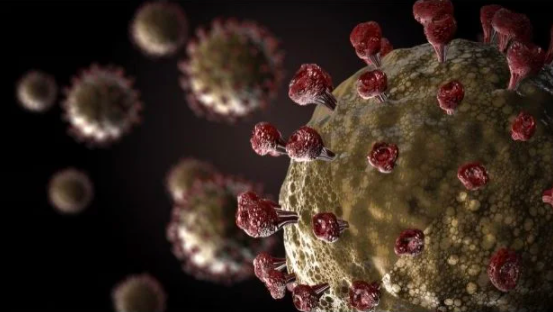Long COVID, according to WHO
NEW YORK — The World Health Organization (WHO) this week issued a definition for “long COVID,” a term used to describe the persistent health problems that affect some survivors of COVID-19. Scientists are still working to understand the syndrome. Here is what they know so far.
The WHO defines long COVID as a condition with at least one symptom that usually begins within three months from the onset of confirmed or probable infection with the coronavirus, persists for at least two months, and cannot be explained by another diagnosis. Symptoms may start during the infection or appear for the first time after the patient has recovered from acute illness.
Among the most common persistent symptoms are fatigue, shortness of breath, and cognitive problems. Others include chest pain, problems with smell or taste, muscle weakness, and heart palpitations. Long COVID generally has an impact on everyday functioning.
The WHO’s definition may change as new evidence emerges and as understanding of the consequences of COVID-19 continues to evolve. A separate definition may be applicable for children, the agency said.
How common is it?
The exact number of affected people is not known. A study from Oxford University (bit.ly/3mynP2f) of more than 270,000 COVID-19 survivors found at least one long-term symptom in 37 percent, with symptoms more frequent among people who had required hospitalization.
A separate study from Harvard University (bit.ly/3BiZELa) involving more than 52,000 COVID-19 survivors whose infections had been only mild or asymptomatic suggests that long COVID conditions may more often affect patients under age 65.
More than 236 million infections caused by the coronavirus have been reported so far, according to a Reuters tally (graphics.reuters.com/world-coronavirus-tracker-and-maps).
What else do studies show?
In a study published in the Lancet, Chinese researchers reported that 12 months after leaving the hospital, 20 percent to 30 percent of patients who had been moderately ill and up to 54 percent of those who were critically ill were still having lung problems.
The Harvard study also found that new diagnoses of diabetes and neurological disorders are more common among those with a history of COVID-19 than in those without the infection.
Do people recover?
Many symptoms of long COVID resolve over time, regardless of the severity of the initial COVID-19 disease. The proportion of patients still experiencing at least one symptom fell from 68 percent at six months to 49 percent at 12 months, according to the study published in the Lancet.
The WHO said long COVID symptoms can change with time and return after showing initial improvement.
Do vaccines help?
Small studies have suggested that some people with long COVID experienced improvement in their symptoms after being vaccinated. The US Centers for Disease Control and Prevention said more research was needed to determine the effects of vaccination on post-COVID conditions.
For more news about the novel coronavirus click here.
What you need to know about Coronavirus.
For more information on COVID-19, call the DOH Hotline: (02) 86517800 local 1149/1150.
The Inquirer Foundation supports our healthcare frontliners and is still accepting cash donations to be deposited at Banco de Oro (BDO) current account #007960018860 or donate through PayMaya using this link .
Disclaimer: The comments uploaded on this site do not necessarily represent or reflect the views of management and owner of Cebudailynews. We reserve the right to exclude comments that we deem to be inconsistent with our editorial standards.

